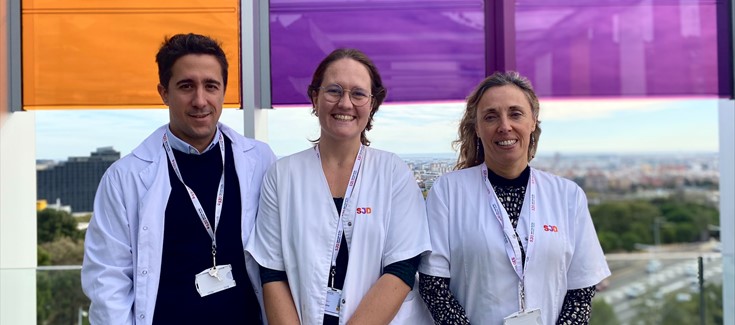
Findings on mitochondrial dysfunction in Rett syndrome suggest a new therapeutic pathway

In a recently published study in the Journal for Translational Medicine, a team from multiple centres, led by the Paediatric Neurometabolism Group at IRSJD · Sant Joan de Déu Barcelona Children's Hospital, has revealed the results of their investigation into mitochondrial function in two different models of Rett syndrome: fibroblasts (connective tissue cells) from patients and brains of MeCP2-deficient mice. MeCP2 gene mutation causes the disease. The analysis of the mouse brains has allowed them to explore differences in mitochondrial dysfunction across three brain areas (cortex, hippocampus, and cerebellum) and at two distinct developmental stages.
The study has confirmed that, in both models, mitochondria are altered in form and function. Additionally, it was observed that mitochondria are already affected in the early stages of the disease, even before its symptoms become apparent. According to the researchers, this underscores the importance of distinguishing between different brain areas and stages of the condition.
Furthermore, the article demonstrates that leriglitazone, a drug capable of crossing the blood-brain barrier, can modulate mitochondrial function in both preclinical models and improve disease symptoms in mice. As explained by Dr. Alfonso de Oyarzábal, one of the authors, "This study provides the necessary preclinical evidence to initiate a clinical trial in Rett syndrome patients, which will kick off in the coming months."

Rett syndrome is a neurodevelopmental disorder that primarily affects girls (it is linked to the X chromosome) and is often caused by mutations in the MECP2 gene. In girls with Rett, there is a regression in neural development following standard postnatal growth. This means they lose cognitive abilities acquired up to the onset of the disease, such as speech and purposeful use of hands. In recent years, it has been discovered that, in addition to neurotransmission issues, Rett syndrome is also linked to mitochondrial dysfunctions, which could serve as a new therapeutic target.
*Source: Avances en la investigación en el síndrome de Rett
